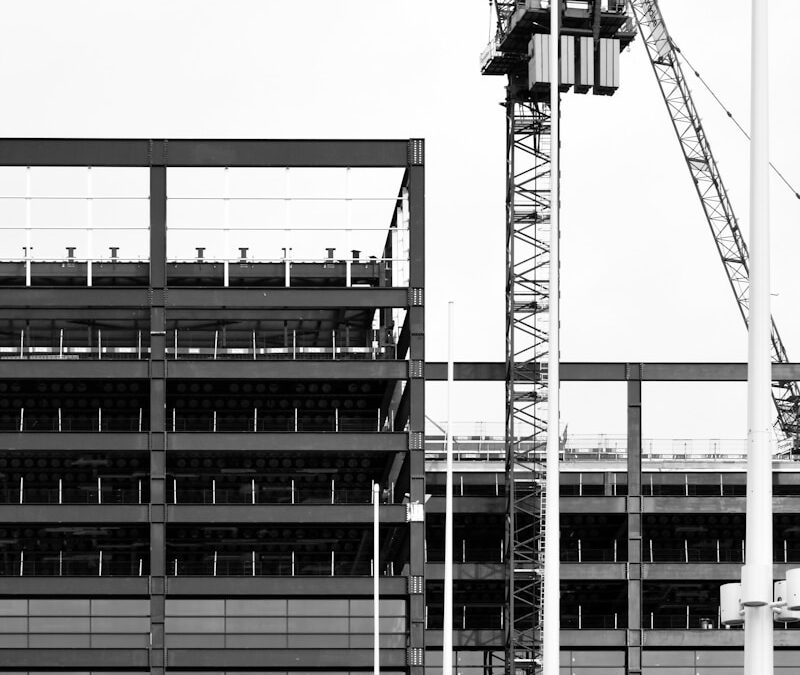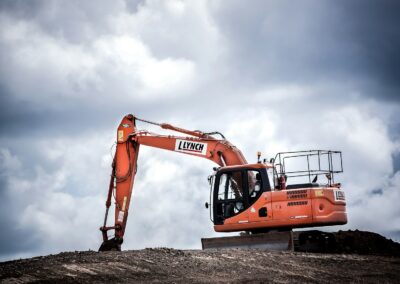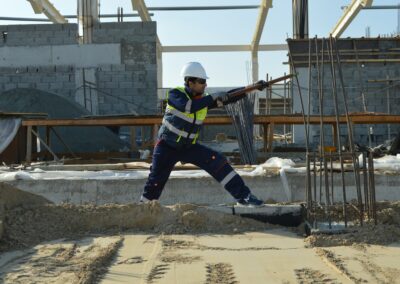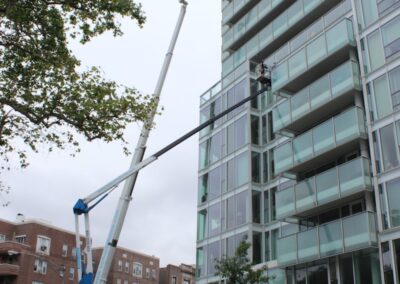Revolutionizing the Construction Industry with Digital Twins
Introduction to Digital Twins in Building Design
The application of digital twins in building design is transforming the construction industry, offering unprecedented accuracy in cost estimates and project timelines. Digital twins, which are virtual replicas of physical assets, allow for real-time simulation and analysis of building projects. This technology ensures that every aspect of the design and construction process is meticulously planned and executed, minimizing the risk of budget overruns and delays.
In regions like Saudi Arabia and the UAE, where rapid urban development is a priority, the integration of digital twin technology is proving to be a game-changer. Cities such as Riyadh and Dubai are at the forefront of adopting advanced technologies to enhance their infrastructure projects. By leveraging digital twins, construction companies in these cities can optimize their building designs, ensuring that projects are completed on time and within budget. This technology not only improves efficiency but also supports sustainable and innovative construction practices.
For business executives and entrepreneurs in the construction sector, investing in digital twin technology is a strategic move that promises significant returns. The ability to provide accurate cost estimates and adhere to project timelines positions companies as reliable and forward-thinking partners in the construction industry. Embracing digital twins aligns with the broader vision of developing smart and sustainable cities in Saudi Arabia and the UAE.
Accurate Cost Estimates with Digital Twins
One of the primary benefits of using digital twins in building design is the ability to generate precise cost estimates. Traditional methods of cost estimation often rely on historical data and expert judgment, which can lead to inaccuracies and unexpected expenses. Digital twins, on the other hand, provide a dynamic and detailed model of the building project, incorporating real-time data and advanced analytics to produce accurate cost estimates.
In cities like Riyadh and Dubai, where construction projects are continuously evolving, digital twins enable companies to adapt to changing conditions and requirements seamlessly. By simulating different scenarios and analyzing their financial implications, digital twins help construction managers identify potential cost-saving opportunities and avoid budget overruns. This proactive approach to cost management ensures that projects remain financially viable from inception to completion.
Furthermore, digital twins facilitate better communication and collaboration among stakeholders, including architects, engineers, contractors, and clients. By providing a transparent and comprehensive view of the project’s financial aspects, digital twins enable all parties to make informed decisions and align their expectations. This collaborative environment fosters trust and enhances the overall efficiency of the construction process.
Timely Project Completion with Digital Twins
The use of digital twins in building design also plays a crucial role in ensuring timely project completion. Delays in construction projects can result in significant financial losses and reputational damage. Digital twins provide a detailed timeline of the construction process, identifying potential bottlenecks and allowing for timely interventions to keep the project on track.
In the fast-paced construction environments of Riyadh and Dubai, where timely project delivery is essential, digital twins offer a competitive advantage. By simulating various stages of the construction process, digital twins help project managers anticipate challenges and allocate resources efficiently. This predictive capability minimizes the risk of delays and ensures that projects are completed within the stipulated time frame.
Moreover, digital twins enhance the overall quality of the construction project. By providing a virtual model of the building, digital twins enable rigorous testing and validation of design elements before they are implemented on-site. This proactive approach to quality assurance reduces the likelihood of errors and rework, contributing to the timely completion of the project.
Challenges and Future Prospects
While the benefits of digital twins in building design are substantial, there are challenges that need to be addressed to fully leverage their potential. Ensuring the accuracy and reliability of digital twins requires high-quality data collection and advanced analytical tools. Additionally, integrating digital twins into existing construction practices necessitates significant investment in technology and training for professionals.
In regions like Saudi Arabia and the UAE, where there is a strong commitment to technological innovation, these challenges are being actively addressed. Governments and private sector players are investing in digital twin technology and fostering partnerships with tech companies to drive its adoption. By overcoming these challenges, the construction industry can unlock the full potential of digital twins, paving the way for smarter and more efficient building projects.
Looking ahead, the role of digital twins in building design is set to expand. Advances in artificial intelligence and machine learning will further enhance the capabilities of digital twins, making them even more powerful tools for construction management. As digital twins become more integrated into the construction process, they will play a pivotal role in shaping the future of urban development in cities like Riyadh and Dubai.
Conclusion: Embracing Digital Twins for Construction Success
The application of digital twins in building design marks a significant advancement in the construction industry. By enabling accurate cost estimates and timely project completion, digital twins are transforming the way construction projects are managed and executed. In regions like Saudi Arabia and the UAE, the adoption of digital twin technology aligns with the vision of developing smart, sustainable, and innovative cities.
For business executives, mid-level managers, and entrepreneurs in the construction sector, investing in digital twin technology is a strategic decision that promises substantial returns. By embracing digital twins, construction companies can enhance their operational efficiency, reduce costs, and deliver high-quality projects on time. As digital twin technology continues to evolve, its impact on the construction industry will only grow, driving progress and success in urban development.
—
#DigitalTwins #BuildingDesign #CostEstimates #ProjectTimelines #BudgetManagement #ConstructionIndustry #SaudiArabia #UAE #Riyadh #Dubai #ArtificialIntelligence #Blockchain #TheMetaverse #ExecutiveCoachingServices #GenerativeArtificialIntelligence #ModernTechnology #BusinessSuccess #LeadershipSkills #ProjectManagement






















